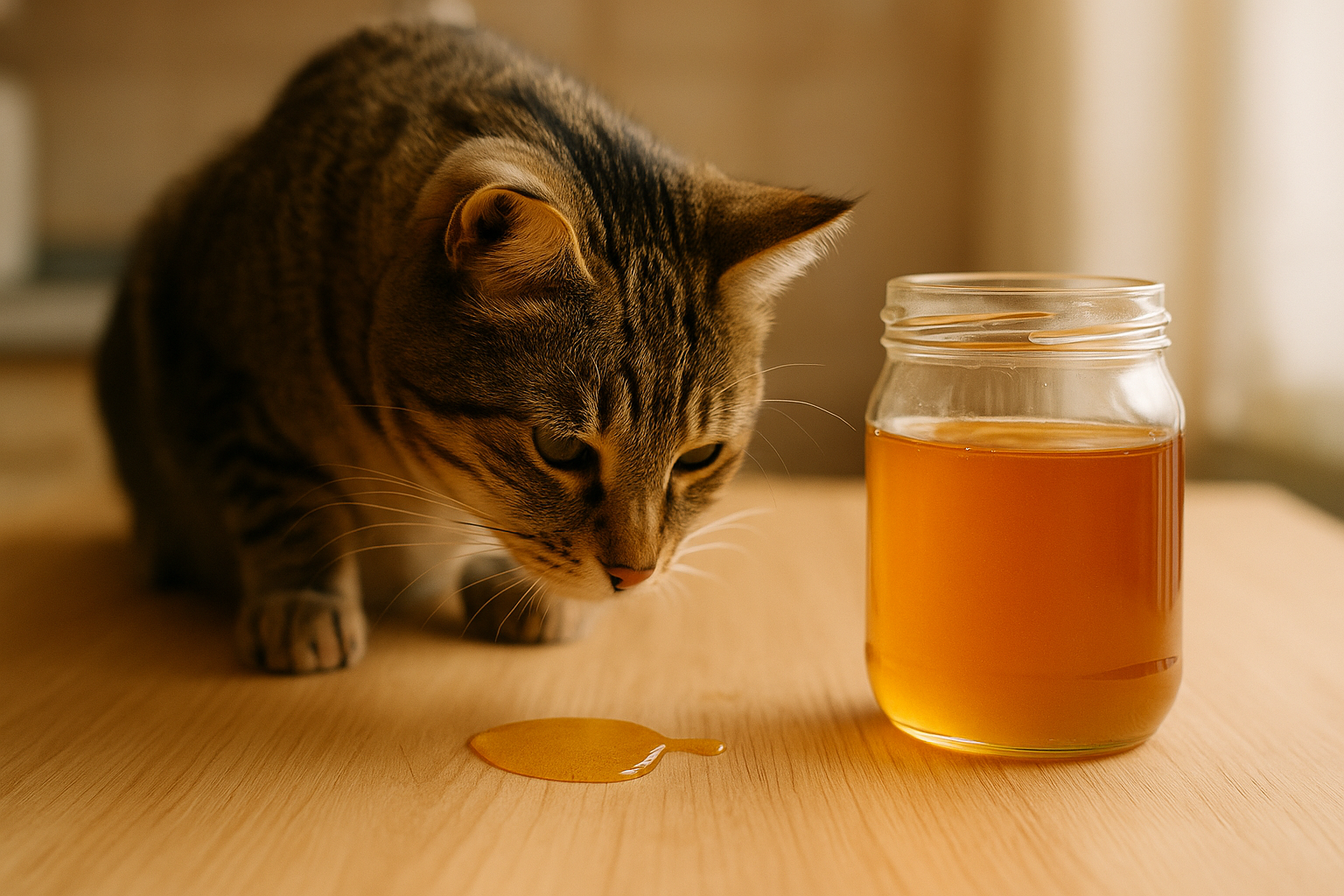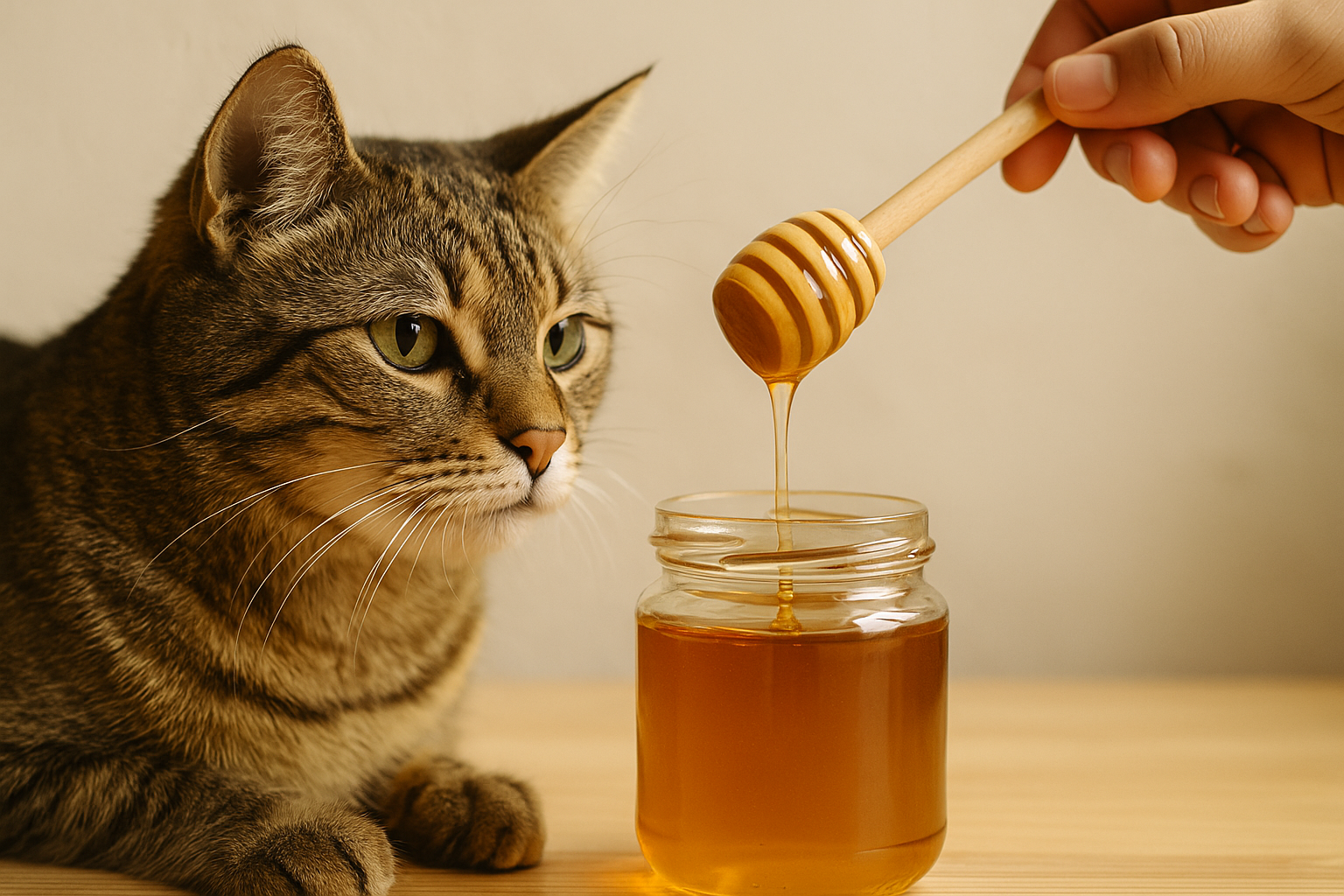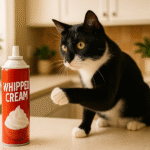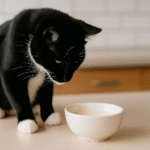If you’ve ever caught your cat curiously sniffing your breakfast plate or trying to sneak a lick from the honey jar, you’re not alone. Many cat parents wonder: can cats eat honey? It’s natural, it’s sweet, and it’s even used as a home remedy for humans—but when it comes to our feline friends, things get a bit stickier.
Is Honey Safe for Cats?
In short, honey isn’t toxic to cats, but it’s also not something they should eat regularly—or at all. Cats are obligate carnivores, which means their bodies are designed to get nutrients from animal protein, not sugar. Honey is pure sugar with trace vitamins and minerals, offering no nutritional benefit for your cat.
A tiny lick won’t harm most healthy adult cats, but even small amounts can cause digestive upset, including vomiting or diarrhea. And because cats lack the enzyme to properly break down sugar, honey can also contribute to weight gain, dental issues, and spikes in blood sugar over time.
Can a Cat Eat Honey for a Sore Throat or Cough?
Some pet owners have heard that honey can soothe a sore throat in cats. While it may sound gentle and natural, there’s no scientific evidence to support this. In fact, feeding honey to a sick cat can make matters worse—especially if your cat has an underlying condition or difficulty swallowing.
If your cat is coughing, gagging, or sounds congested, it’s best to schedule a quick vet visit instead. Respiratory symptoms can have many causes, from mild allergies to serious infections or even asthma. Honey isn’t the fix, but your vet can help pinpoint what’s really going on.
Are There Any Risks to Feeding Cats Honey?
Yes. While adult cats can usually tolerate a tiny taste, kittens and cats with weakened immune systems should never have honey. Raw or unpasteurized honey can contain botulism spores—rare, but dangerous for small or immune-compromised animals.

Even pasteurized honey poses risks. Because it’s so high in sugar, it can easily upset your cat’s stomach. You might notice soft stool, reduced appetite, or lethargy after eating something sweet. If that happens, offer fresh water and monitor for symptoms. Persistent discomfort means it’s time to call your vet.
Can Honey Be Used on Cats for Wounds?
Although honey isn’t something cats should eat, veterinarians sometimes use medical-grade Manuka honey for wound care. Thanks to its antimicrobial and anti-inflammatory properties, it can help support healing in minor skin injuries. Manuka honey creates a natural barrier that protects the skin, draws out bacteria, and encourages tissue regeneration.
This isn’t something to try at home without professional guidance—but it’s a rare example where honey might help cats, just not from the inside out.
What If My Cat Licked Some Honey?
Don’t panic! If your cat just licked a little bit off a spoon or from your finger, it’s not likely to cause harm. Just keep an eye out for any signs of stomach upset over the next 24 hours. There’s no need to induce vomiting or rush to the vet unless your cat eats a significant amount or has a pre-existing health issue like diabetes.
To prevent repeat incidents, make sure honey jars, baked goods, and sweetened foods are stored out of reach. Cats may not taste sweetness the same way humans do, but curiosity (and scent) still wins every time.
Healthier Treat Alternatives
Instead of honey, stick with cat-safe treats designed specifically for their digestive system. Freeze-dried chicken or salmon bites are excellent high-protein options that satisfy your cat’s natural cravings. Soft meat-based treats or single-ingredient snacks are a much better choice than anything sugary or sticky.
Can Cats Eat Honey? The Final Verdict
So, can cats eat honey? Technically, yes—but they shouldn’t. While a lick won’t send you running to the vet, honey simply doesn’t belong in your cat’s diet. It offers no nutritional value and can cause more problems than it solves.
If your cat seems interested in sweet foods, it’s usually out of curiosity rather than craving. Save the honey for yourself and keep your feline friend’s diet focused on high-quality protein, moisture-rich wet food, and the occasional healthy treat.
Cat Honey FAQs
Can cats eat raw honey?
No. Raw honey may contain bacteria or spores that can cause botulism in kittens or cats with weak immune systems.
Can honey help a cat’s cough?
There’s no solid evidence that honey helps cats with coughs. It’s safer to contact your vet for proper treatment.
What happens if my cat licks honey off my plate?
One lick is unlikely to cause harm. Just make sure it doesn’t happen often and watch for any signs of stomach upset.
Can diabetic cats have honey?
No. Honey can spike blood sugar levels and should never be given to cats with diabetes or pre-diabetic tendencies.





